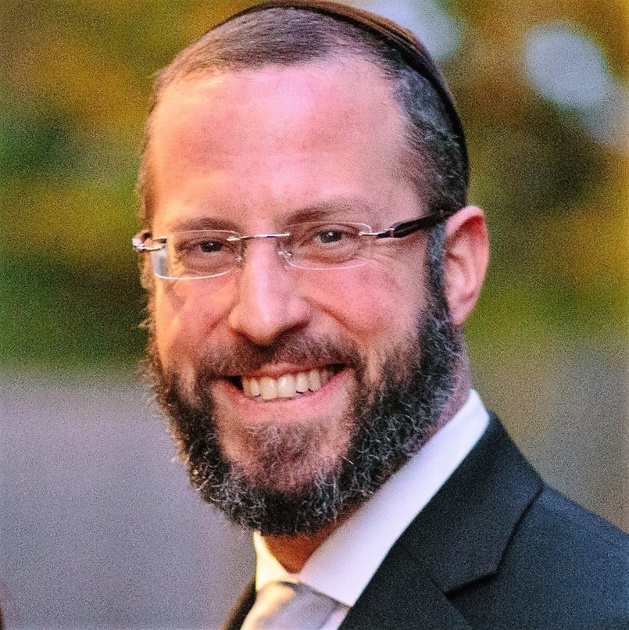
On an exceptionally rainy and cold winter morning, Rav Yehoshua Trunk of Kutna, a great 19th century Russo-Polish rabbinic scholar, was intensely studying with his students. Suddenly, he closed his Gemara and invited them to accompany him on a stroll. The students looked at one another quizzically. Gradually, they followed him to the outskirts of the city and walked toward the intercity road. As they neared the way, they saw a peddler laboring intensely in the mud just created by the heavy, icy rain. His cart was full of merchandise and his lone horse was powerless to free the cart and pull it to the road. The peddler was concerned that his meager investment would perish as it was exposed to the elements. He also worried that his only horse would collapse from the exertion. He forlornly looked heavenward and cried for help. Rav Yehoshua motioned to his students and they joined together to wrench the cart free of the muck and to the road.
The very grateful peddler, unaware of the identity of his helpers, assumed that he had the Providence and good fortune to encounter a skilled group of haulers. He asked them about remuneration. Rav Yehoshua responded that each of the men were to be paid a kopeck (the former Polish/ Russian version of a penny). The man then turned to Rav Yehoshua, who he presumed was the foreman, and asked him how much he wanted. Rav Yehoshua responded that he should be paid three kopecks. The man promptly compensated, and expressed his unceasing thanks as he made his way on the road to peddle.
The next day, Rav Yehoshua and his students heard vigorous pounding on the door in the middle of their studies. They opened the door and saw the peddler that they had helped yesterday, distraught. He apologized profusely for taking advantage of them. He bemoaned that he had the audacity to make use of the time and effort of a leading Torah luminary and his students for his own service.
Rav Yehoshua swiftly comforted the man. He gently explained to the peddler that he did not gratuitously make use of Torah scholars. They had an ad hoc business arrangement and he had paid for their services properly and fairly.
As I read this story recently in a Hebrew book, I began wondering about the legal permissibility for Rav Yehoshua and his students to leave their Torah study to help that unfortunate peddler. Torah study is a serious matter and is not permitted to be interrupted. Maimonides codifies the absolute significance of Torah study (Laws of Torah Study, Chapter 3, 3 -4):
There is no commandment among all the commandments that has a weight equal to Torah study. Rather, Torah study is equal to all the commandments, because study brings to deeds. Therefore, study takes precedence over deeds in every regard.
If one has the opportunity to do some [other] mitzvah or to learn Torah, and the mitzvah could be done by someone else, he should not interrupt his learning. Otherwise, he should do the mitzvah, and return to his studies.
How did Rav Yehoshua divert his attention from Torah study and direct his students to follow? I began to reason that Rav Yehoshua and his students were covered by the latter clause in the Rambam. There were probably few groups of people that could have banded together to help the poor vendor. Therefore, assisting him fell under the caveat that if the mitzvah cannot be done by anyone else, one may interrupt Torah study to perform it.
Afterward, I began chiding myself. I could have basked longer in the shine of the story and imbibed its statement about the majesty of assisting others. Instead, my mind raced to contemplate the legalistic justification of Rav Yehosuha and his students. My internal give and take was rational, logical, and contained an appropriate question. Yet, I noticed how quickly my “go to place” was to probe and understand the Halachic validity of the story.
I reminded myself of the Jewish joke that explains the difference between two similar terms used for hapless or pesky individuals, schlemiel, schlimazel, and nudnik. The pithy explanation is that the schlemiel is the one who spills the soup, the schlimazel is the one who the soup spills on…and the nudnik is the one who asks what type of soup it was.
I felt a tinge of being a nudnik. I moved away from a beautiful example of kindness, selflessness, and thoughtfulness to the realm of the legal. This seems to have been in contrast to Rav Yehoshua of Kutna in the story. Rav Yehoshua was not a prophet. He probably did not know that a specific merchant needed his help. His deep perception and attentiveness to the needs of others led him to believe that people would probably be in great need of assistance in the rain. On the other hand, my initial thought was to focus on the rational and legal exploration of the story.
Relegating the human experience to analysis and exploration in an official way is sometimes an easy route. When we examine something legally and analytically, it allows us to observe it as an outsider. It side-swipes the messiness of being human. This can prevent the exchange or experience from touching us. That might even be the reason that we run to do it. Legal analysis is complex, but is it safe. We don’t need to feel, explore, or be in touch with the world of emotions of ourselves, or of others.
I then observed that I was not alone in seeking safety in the non-human part of the story. The Hebrew book that I was studying had an epilogue: When a contemporary Torah scholar heard this story, he was perplexed. The Talmud states (Bava Metzia 32a) that since it is a mitzvah to assist one’s neighbor load or unload a struggling animal, one may not take payment for that actions. The scholar was bothered how Rav Yehoshua and his students allowed themselves to be paid for their good deed. The scholar’s reaction contained a different question than mine, but was still focused on the legalistic nature of the story. That scholar himself might have marveled at the beauty of Rav Yehoshua’s benevolence. Yet, the brief analysis in the book and its juxtaposition to the story left me with an impression of analysis instead of feeling and scrutiny instead of humanity.
In contrast, our Sages observe that the first description the Torah gives of Moshe (Moses) in Egypt was that he observed the suffering of his nation in slavery and was tormented. Moshe was sheltered in the protection of Pharaoh’s court, but went to see and experience the anguish of his nation. Importantly, the Torah describes that it was the first thing that Moshe did when he matured. Moshe’s joining the distress of his people was both a result and a statement of his maturity. Moshe’s extraordinary empathy is closely related to his success as the most renowned and revered teacher in Jewish history.
The contemporary educational system sometimes places great emphasis on analysis and legal understanding. The skills, techniques, and knowledge that one learns are invaluable in further study, and in life. Yet, they are one part of an important scholastic corpus. One’s struggle with the complexity of the human experience, both his own, and those of others, is important to keep in mind. Focus on legalisms and rationality can sometimes leave one, or his neighbors, struggling helplessly in the cold.
Find this post and more like it at my blog, ShmuelMaybruch.com
 Previous
Previous

